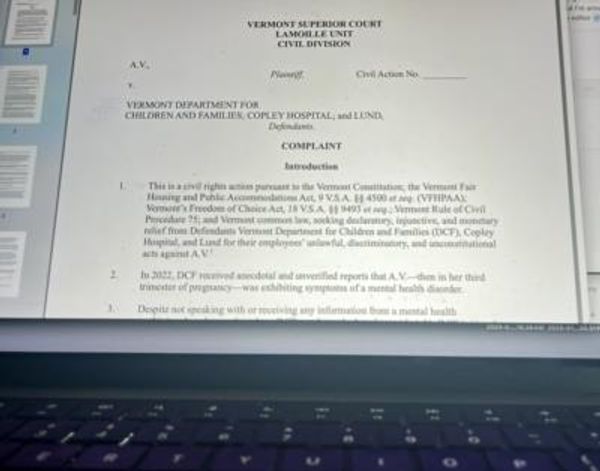
August 30 is the Day of the Disappeared. You’d be forgiven for thinking it was the name of a horror film. Indeed, what it commemorates is horrific.
The International Day of the Disappeared, on every August 30, was created to draw the world’s attention to the victims of state-sanctioned enforced disappearances. Every day countless numbers of people are snatched up into secret imprisonment, and their families are left to wonder where they are and whether they’ll ever see each other again.
The Chinese Communist Party (CCP) loves to argue it is the biggest and best at everything. Here’s another statistic it can boast of: it is now a world leader in enforced disappearances. Since 2012, when Xi Jinping (習近平) took the helm of the CCP, the party has launched several new mechanisms for vanishing people. The victim base has expanded from rights lawyers, journalists and dissidents to foreigners kidnapped for hostage diplomacy, celebrities, and businesspeople.

Taiwanese are at risk of being disappeared, too. Although official figures are hard to come by, some estimated between 1 and 3 million Taiwanese nationals residing in China. Considering China’s pattern of bullying the island nation, Taiwanese citizens are particularly vulnerable targets.
On the Day of the Disappeared this year, a large group of international human rights NGOs including Safeguard Defenders are speaking out against China, the worst perpetrator of state-conducted disappearances in the world. Here are the three main systems for enforced disappearances in China:
- The CCP has placed over 1 million Uyghurs into "re-education camps" in Xinjiang.
- CCP authorities terrorize human rights defenders and lawyers by swallowing them up into a system of secret detention called “Residential Surveillance at a Designated Location (RSDL)."
- In 2018, the CCP launched its fearsome anti-corruption watchdog, the National Security Commission (NSC). The Commission, which operates outside the country’s judicial system, has the power to disappear both party members (that’s over 90 million people), anyone working for the Chinese state (many millions more, theoretically including nurses, kindergarten teachers, etc) and anyone from anywhere who is connected to an NSC investigation. The detention system called Liuzhi (留置) works like RSDL — it spirits detainees off to a secret location for intense interrogation in isolated cells for up to six months.
All victims who are trapped in China’s ever-growing ecosystem of enforced disappearances are extremely vulnerable to physical and mental torture. A few of them won’t make it out alive.
Taiwan will remember the case of Lee Ming-che (李明哲), a Taiwanese NGO worker and democracy activist who is the first known Taiwan victim of RSDL. Lee went missing shortly after he crossed the border into China from Macau on March 16, 2017. CCP authorities kept quiet for more than a week before they admitted he was being investigated for “crimes against national security.”

For the next five months he was kept in incommunicado RSDL detention, where he was more than likely subjected to extended interrogations, food and sleep deprivation, threats, and possibly forced medication. He was kept in an isolated facility, with only his interrogators or guards for company, and, crucially, refused the right to retain his own lawyer. The first time his wife, Lee Ching-yu (李凈瑜), saw him after his disappearance was at his trial in September 2017, where he was filmed delivering a forced confession.
The CCP uses RSDL excessively against rights defenders like Lee, and it is now expanding the system as a tool to threaten and punish states that anger the party. Ask Canada about its citizens Michael Kovrig or Michael Spavor (both vanished into RSDL in December 2018). Ask Australia about its citizen Yang Hengjun who could possibly face death penalty if charged with espionage.
It is not inconceivable that an increasingly emboldened Beijing may snatch British citizens because London supported the Hong Kong protests, or detain traveling American citizens if the U.S.-China relations continue to sour.
The remaining question is: who's next?

In the book The People’s Republic of the Disappeared (失蹤人民共和國), published in 2016 by Safeguard Defenders in English and Chinese, victims of RSDL describe how they never saw sunlight for six months, were watched 24 hours a day by guards, were made to take pills that made their heart race or their brain go foggy, were left to soil themselves and denied even the most basic human dignity of going to the bathroom, and collapsed crazed after days of constant interrogation without sleep.
RSDL has been used extensively to punish and cripple human rights lawyers and defenders.
The new detention system Liuzhi targets corruption, but it comes without the scant protections of RSDL – there is no stated right to a lawyer and no agency oversees its operations. NSC, the operator of Liuzhi, is managed by the National People’s Congress, which in practice does not have the power to monitor the system.

Launched in March 2018, Liuzhi has already claimed several high-profile victims: former Interpol President Meng Hongwei (孟宏偉) and Supreme Court Judge Wang Linqing (王林清). Countless others have been caught up, but with no official and complete records of Liuzhi made public, real numbers are impossible to determine. Safeguard Defenders has used incomplete provincial data to estimate that anywhere between 16 and 70 people are disappeared into Liuzhi every day.
The case of Chen Yong (陳勇), a chauffeur to a former local government official, illustrates both the brutality and arbitrariness of Liuzhi’s reach. A mere five weeks after the new system was established, Chen, who had been detained in connection with an investigation on his boss, turned up dead. When his wife and mother came to view his body, it was mangled and bruised; his chest sunk in. He was only 45 years old.
Since Xi Jinping took power in 2012, the CCP has massively scaled up state-sanctioned kidnappings and enforced disappearances and painted them with a veneer of legality by writing them into law. A key reason behind the CCP's rapid expansion lies within the failure of international governments and institutions to stand up to Beijing and demand a stop to this nationwide, egregious human rights violation.
Our lack of attention also allows the practices to remain poorly understood, and if this does not change, they will continue to flourish in the dark.
That is why, on the International Day of the Disappeared, we call on Taiwan and the world to shine a spotlight on China’s disappeared, to condemn its growing network of detention systems, and to stand in solidarity with the family members left behind who can only pray that their loved one is still alive.
READ NEXT: Rioting Charges Strip Away Our Everyday Normality, Says HK Activist Johnson Yeung
TNL Editor: Daphne K. Lee (@thenewslensintl)
If you enjoyed this article and want to receive more story updates in your news feed, please be sure to like our Facebook page below.







